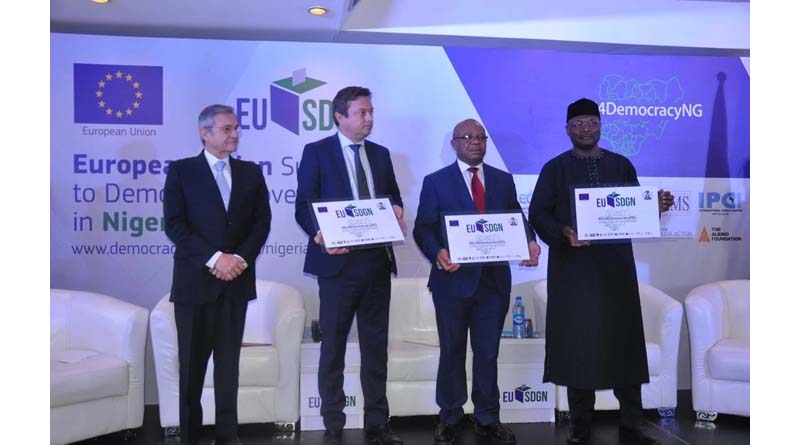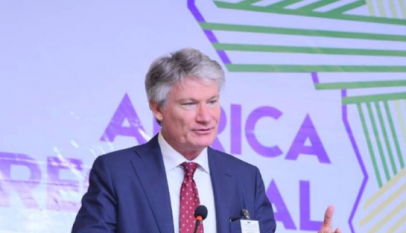EU launches €26.5M Support to Democratic Governance in Nigeria (EU-SDGN) project
The European Union has Thursday formally launched its €26.5M-worth Support to Democratic Governance in Nigeria (EU-SDGN) programme which aims “to contribute to the reinforcement of democracy in Nigeria through building strong, effective and legitimate democratic institutions.”

Speaking at the launch event which was held in Abuja, the Nigerian capital, European Union Ambassador to Nigeria and ECOWAS Ketil Karlsen said EU-SDGN would be “anchored in the priorities of the Nigerian government and the recommendations of the European Union Election Observation Mission on the 2015 General Elections and of the expert identification and formulation mission to Nigeria.”
As well as the 5-year EU-SDGN project scheduled to be implemented between 2017 and 2022, Karlsen said the EU had provided financial and technical support to key electoral institutions and stakeholders in Nigeria worth over 100 million euros, since the country’s return to democratic rule in 1999.
“This is a flagship project in terms of our support to and partnership with Nigeria,” said Karlsen. “Without democracy there is no stable development and without stable development there won’t be opportunities for all. Therefore, nourishing democracy will never end; we need to continue to do so. It is our hope that the impact will go beyond Nigeria and Africa – in terms of building strong and legitimate democratic institutions.”
He said the project would specifically focus on 5 components including improved quality of electoral administration in Nigeria; effective discharge of legislative function in compliance with democratic principles and standards; as well as enhanced pluralism, tolerance, internal democracy and equality of opportunity of political parties and the political party system.
Others were fair, accurate and ethical coverage of the electoral process by the media, including radio and social media; as well as women, youth and marginalized citizens, civil society organisations and other relevant agencies contribution to enhancing the electoral process.
Also speaking at the event, Mahmoud Yakubu, chairman of Nigeria’s Independent National Electoral Commission (INEC), acknowledged the EU’s support to INEC and Nigeria in the areas of voter education, capacity building for political parties as well as security agencies.
He described the 2015 Nigerian elections as a ‘watershed’ and ‘turning point’ not only for Nigeria but also for Africa as well adding that INEC had since then been receiving delegations from other African countries like Liberia, Cameroun, Sudan and Somalia whom he said were coming to “learn how to successfully conduct elections”.
“I expect the implementing partners [for EU-SDGN] to work in synergy to strengthen democratic institutions and electoral processes in Nigeria within the period [2017 – 2022]; we will spare no effort in improving the credibility of elections and consolidation of democracy in Nigeria. I want to inform you that 2019 will be better than 2015,” pledged Yakubu.
EU-SDGN will be implemented by 10 implementing partners, majority of them being local civic organisations. They include the European Centre for Electoral Support (ECES), the Policy and Legal Advocacy Centre (PLAC), and the Youth Initiative for Advocacy Growth and Advancement (YIAGA).
Others are the Nigerian Institute of Policy and Strategic Studies (NIPSS), the Institute of Media and Society (IMS), the International Press Centre (IPC), BBC Media Action, Albino Foundation, the CLEEN Foundation as well as the Westminster Foundation for Democracy.













